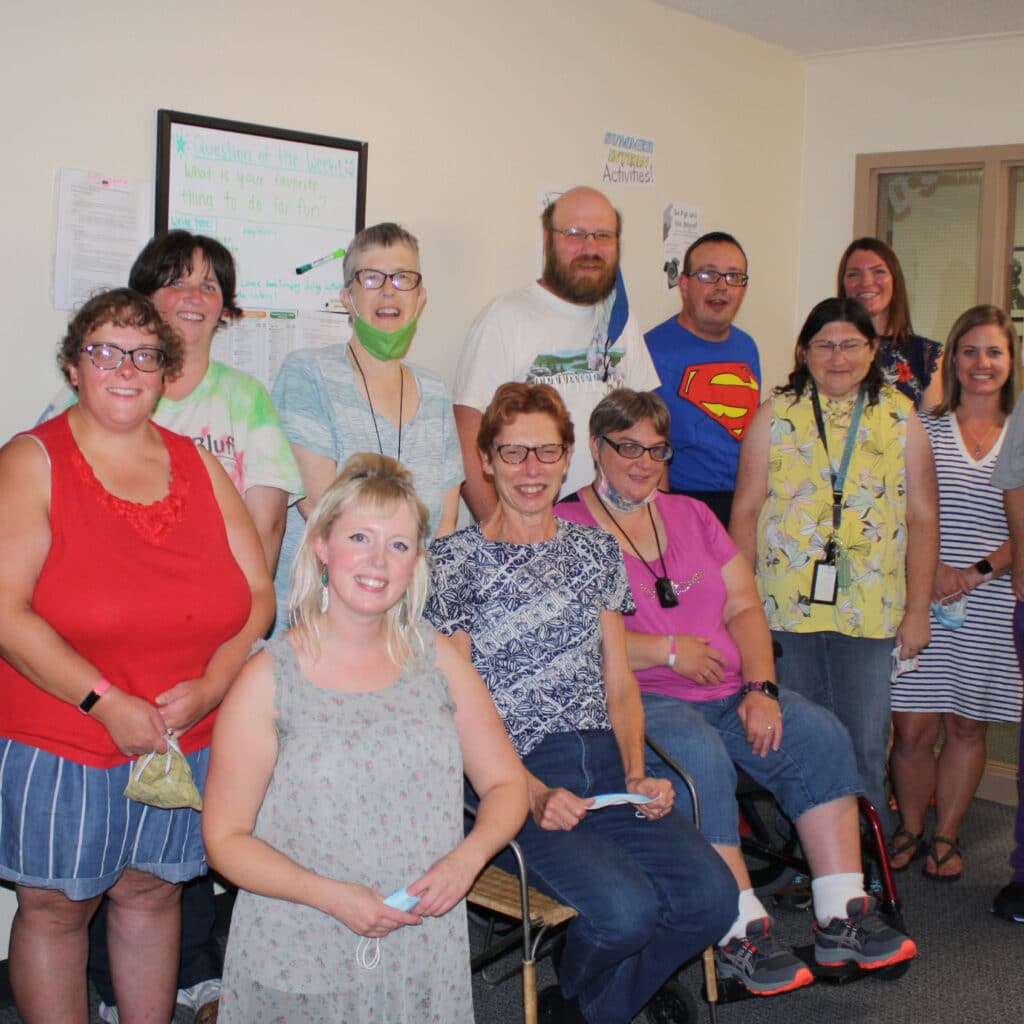
Home and Community Options (HCO) initially began its work by offering residential housing options for individuals with developmental disabilities, providing a safe and supportive environment where they could live and thrive. As the organization grew, it became clear that there was also a need for services aimed at individuals who were living more independently but still needed some support to manage daily tasks. This need led to the development of the Community Living Support (CLS) program.
The CLS program was created for individuals with developmental disabilities who could live independently in the community but still required some assistance. Typically, these individuals were 18 or older and lived on their own, with family, or had previously lived in one of HCO’s residential homes. The program provided support for essential daily tasks such as managing finances, keeping appointments, cooking, cleaning, and using public transportation.
Long-time HCO Director, Kathy Murck, described the impact of HCO’s services in a simple but profound way:
“It wasn’t working with people with developmental disabilities, it was just working with people. There was no difference.”
She reflected on how powerful it was to see individuals out in the community—fully included and valued. “It’s just nice seeing people be people,” she said, regardless of their abilities. This belief was at the heart of the CLS program: helping individuals live as independently as possible, while ensuring they had the necessary support to thrive.
The referral process for the CLS program often began with Case Managers, who would identify individuals who could benefit from this service. Initial meetings were crucial in helping better understand their unique needs and goals, building a relationship of trust and tailoring the services to suit each individual’s specific circumstances.
Services provided through the CLS program took place either at the CLS office, at the individual’s home, or in the community and focused on helping individuals with the skills and tools needed to live independently. Some individuals needed assistance in organizing their schedules and keeping track of appointments, while others sought guidance in budgeting or preparing meals. The services were flexible and varied depending on each person’s interests and needs. No two individuals were alike, and HCO staff worked to ensure that the support offered was personalized and meaningful.
In collaboration with their interdisciplinary teams (family, HCO staff, case managers, their other providers, etc.), each individual received a service contract that outlined the number of hours HCO staff could provide each week. This contract helped define the scope of the services and ensured that everyone received the right amount of support based on their needs.
Each CLS staff member, or Primary Counselor, was responsible for a caseload of several individuals. These counselors worked closely with the individuals they supported, meeting regularly to assist with daily tasks and long-term goals. Whether it was teaching someone how to manage their finances or helping them navigate public transportation, the Primary Counselor played a key role in supporting independence.
The CLS program grew out of HCO’s early focus on residential services, expanding to meet the needs of individuals who had gained skills and were ready for more independence.
By providing this more flexible and individualized assistance, the CLS program helped individuals with developmental disabilities take important steps toward living fully independent lives in the community. It became an essential service for those who no longer required residential care but still needed some support to manage the day-to-day tasks of life.
Although this type of service is no longer referred to as CLS, service models like this still play an important role at HCO for those that are working towards independence.



